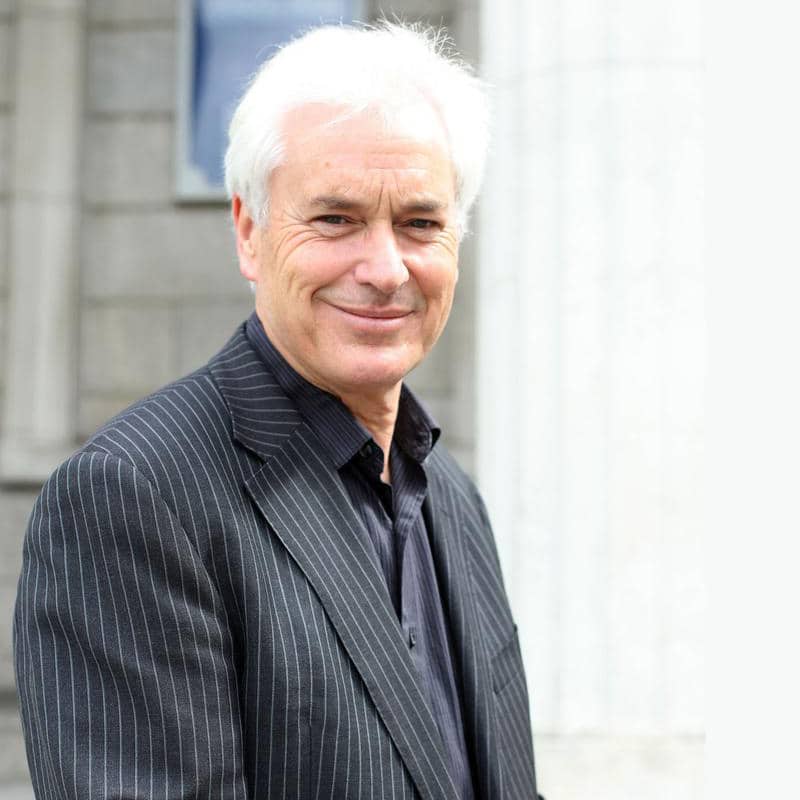
#50
How to cultivate confidence into a superpower with Ian Robertson
In the second part of this interview with Ian Robertson we discuss confidence, and his most recent book ‘How Confidence Works: The New Science of Self-belief, Why Some People Learn it and Others Don’t’.
We discuss how confidence empowers action and why it is a bridge to the future – we review the implications of this and if we can we learn to be more confident and manage overconfidence. We also look at the role of confidence in sport, leadership, decision making, and stress is more useful than we think.
It was an extremely practical and insightful conversation that I found sheds new light on an old subject. Enjoy!
Subscribe
Find the show on your favourite player
Summary
03:11 What prompted Ian to write a book about confidence
- Confidence has a huge impact on children
- Ian has seen so many people that have the potential to achieve great things, but they lack the ‘can-do’ attitude
04:32 What confidence looks like in a healthy individual
- Adaptive confidence is the belief that one can move forward into uncertain situations and adapt to the situation
- It is being able to anticipate rewards
06:31 Measuring confidence in the brain
- Confidence activates the brain’s reward network, which lifts your mood and lowers anxiety
- Confidence impacts our wellbeing and behaviour
10:13 Anticipating and projecting future situations
- What distinguishes human beings from other species is the ability to conjure up a future state of the world and take action
- “Confidence is the fuel to achieving what humans can envision”
11:11 Self-esteem, optimism and self-belief
- Self-belief is the same as confidence
- Optimism is the belief that things will turn out okay without any particular link to yourself
- Self-esteem is your evaluation of yourself
- “The secret sauce of confidence is action”
15:11 Acting, feeling and being confident
- Practising the habits of acting and feeling confident lead to becoming confident
- Once you start to achieve success from acting and feeling confident, you are more likely to continue taking action and succeed
- “We all need to fake it till we make it”
17:48 How to gain confidence in a new area or skill
- Confidence is a critical enabler of learning and practising new skills
- You are more likely to persist and focus on a task if you are confident
20:07 Why are some people more confident than others?
- You can measure an individual’s overconfidence by getting them estimate their IQ
- On average, men tend to overestimate their IQ compared to women
- Confidence comes from a mixture of nature and nurture, and it grows like compound interest
- We learn confidence by feeling that our significant others believe in us
- A parent’s fear of failure in their child instils a lack of confidence in the child
24:24 Confidence in children
- If a parent encourages their child to learn from their mistakes, it helps the child to become more robust and resilient
- It’s important to encourage intrinsic instead of extrinsic goals
30:08 Overcoming adversity
- Getting through times is one of the greatest sources of confidence
- Taking action in spite of anxiety demonstrates that you are in control
32:17 The role of doubt
- It’s critical to have doubt so we don’t get overzealous
- A deliberative mindset is doubting and deliberating over pros and cons
- An implemental mindset selects a goal and focuses on how it’s delivered
- We need a balance between deliberation and implementation
36:14 What to do when there has been a big shake to your confidence
- Review your attitude to failure
- “The bigger the setback, the bigger the opportunity”
- Ground yourself with your values
- “Action is the greatest antidote to anxiety”
43:49 What is collective confidence?
- Good leadership instills confidence in a group
45:45 Confidence in males vs. females
- Lack of confidence in women is largely due to societal and cultural messaging
- For example, girls are taught to be “nice” and boys to be “competent”
47:11 Finding the ‘sweet spot’ with stress
- Stress is the perception that certain demands exceed your ability to cope with a situation
- Symptoms of anxiety are the same as anger and excitement
- Change your perception of a situation from a threat to an opportunity
Links Mentioned: